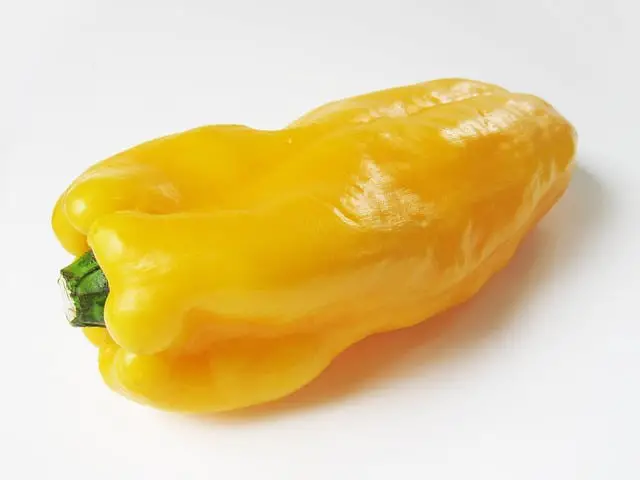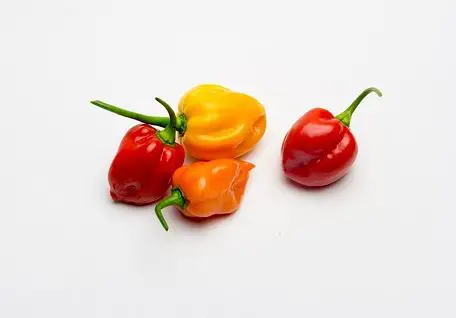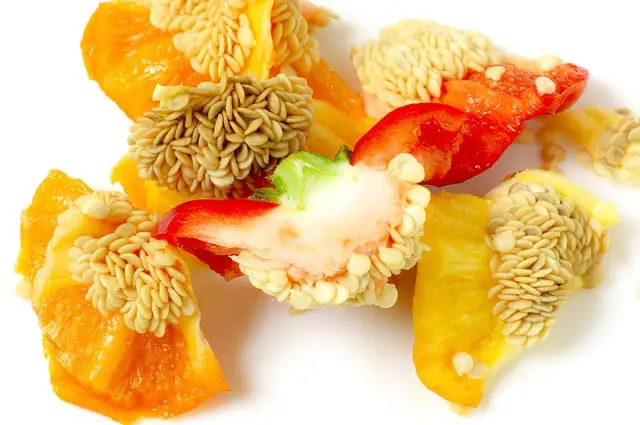I am a big fan of eating and cooking with peppers. The more spicy they are, the more I like them. Well I do have my limits when it comes to the spiciness. Which is a high limit, but anyway. What about when the peppers has black seeds? This is something that raises concern.
No matter if the peppers are grown in your garden or from the grocery store. It is good to know why this can happen.
Can You Eat Peppers With Black Seeds? Remove the seeds and discard them. The pepper is safe to eat if no mold is growing on or inside it. Seeds that die off or don’t grow properly can turn black. It is safe to eat if the rest of the pepper is healthy.
As long as there is no fuzzy mold growing on the pepper it is safe to eat. The seeds are prone to drying out before the rest of the fruit. Seeds that are fresh are nearly white in color. When a pepper is dried slightly the seeds can start to turn brown.
Peppers can be tricky to tell if they are past their time. Because you can also dry peppers naturally and watch them change colors. They will not mold for a long time in the right conditions.
How To Tell If A Pepper Is Bad
If peppers sit in moist conditions. They will be susceptible to molding. In a refrigerator drawer with other vegetables. Molds and the gases from the other ripening vegetables will speed up this process.
One of the first things to look for in a pepper is the skin. Does it look wilted and wrinkly? Is it soft and squishy to the touch? Fresh and healthy peppers will have smooth and firm skin. When the skin becomes soggy and the pepper begins to almost deflate.
This doesn’t mean the pepper has gone bad but its nearing its last stage.

One sign of the pepper going bad is if the color has changed. Any brown or black/brown blotches are a bad sign.
Peppers change color naturally as they ripen. Bell pepper colors come from the different stages of ripeness. Notice a green pepper might start to turn yellow then orange then red. These are regular changes in the pepper.
Check the stem of the pepper for any signs of fuzzy white or black mold. This part of the pepper where the stem meets the skin is where mold can begin. If the stem has broken off and the pepper is mushy then cut away that part.
If the smell of the pepper is different. Peppers are sometimes hard to smell directly until you cut them open. If you notice the smell is different than it could be bad.
When buying peppers in a jar or can check for any leaks or dents. This is a good sign to throw the peppers out.
If you are growing peppers in your garden. Sometimes they can start to form white spots. This is from too much sun, sun-scald peppers will have white or yellowish spots on the outside. The pepper is still safe to eat, but you should start to shade them from intense sunlight hours. Also try to water them more.
Peppers With Natural Black Seeds
Some peppers will have black seeds naturally. This is not due to anything else but the how it grows.
- Manzano Chili Peppers have black seeds that almost look like tiny raisins.
- Capsicum pubescens is a chili pepper that has black seeds.
Can You Eat Pepper Seeds?
Pepper seeds are safe to eat. There is a misunderstanding that the seeds are the spiciest part of a pepper. The seeds themselves are not any spicier than the peppers flesh.
Capsaicin is the chemical that is responsible for the heat of the chili pepper. This chemical is found mostly in the ribs of the pepper. More specifically that white layer that almost looks like fat (called pith). The capsaicin gland this is where the spice is concentrated. Sometimes more so near the top of the pepper.
How long do peppers last?
Peppers will last longer in the refrigerator than sitting on a counter. If you leave them sitting on a counter, expect to have them last for a week. Depending also on the ripeness of the pepper. A green pepper is the earliest stage.
When refrigerating peppers they can last for up to 2 – 3 weeks. Freezing peppers works as well, you can freeze them for up to a year. The only problem is thawing them out. When you thaw them the pepper will loose its crunchy skin. For the longest shelf life canning peppers is the best. They should last for years if canned and stored properly.
Read more: Does Hot Sauce Get Hotter In The Fridge?
Why Do You Remove Seeds from Pepper?
The reason people remove the seeds is because its suppose to get rid of the heat. Well the pith is where the seeds grow and that is the capsaicin gland. So if you are removing the seeds you are probably cutting part of that pith off.
The seeds can carry residue of capsaicin though but they are not hotter than that pith. So removing the seed can help tone down the spiciness.
Another reason is the texture of the seeds. There isn’t much to wanting to eat the tiny seeds. They are too small to chew or cook alone with. It is sometimes cleaner to remove the seeds.
The seeds end up all over the cutting board and wind up on the floor. Sometimes its best to remove them.
Pizza is one exception as you can get crushed red peppers at most restaurants. There is a lot seed in those and they can be very spicy. They go good on pizza or in soup.
Are Smaller Peppers Hotter?

Many peppers that are smaller are spicier than larger peppers. Bell peppers are mild compared to a small habanero.
One reason smaller peppers are spicier is because the concentration of capsaicin is greater.
There is more to it than the size though. Because many of the hottest peppers have been genetically modified by growers and pepper enthusiasts.
It is more genetic mutation that causes them to become super spicy. It has to do with the wall of the pepper. Which take a ghost pepper for example, they have a bumpy skin to them.
In my understanding it is this difference that makes them hotter. Because the capsaicin gland grows into the pepper with more surface area.

